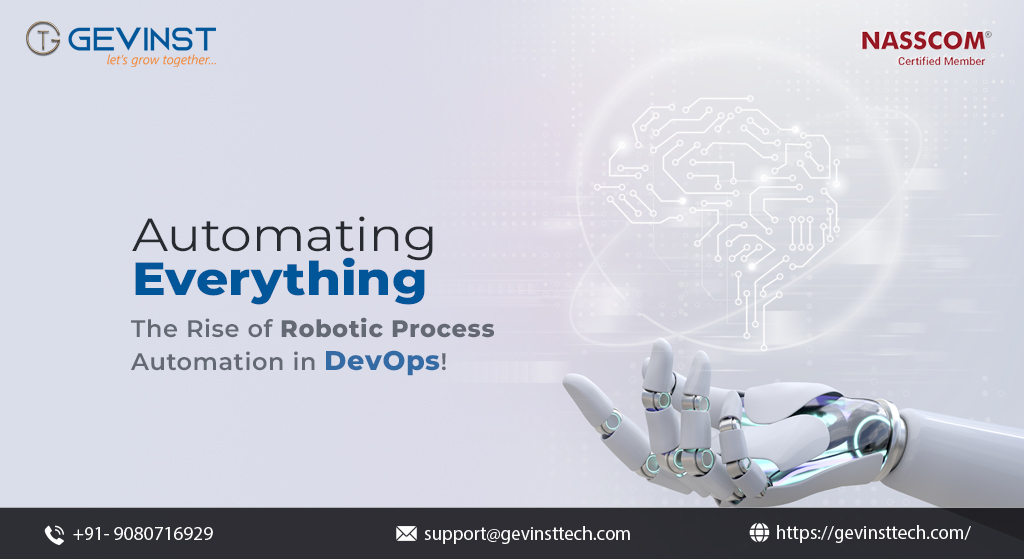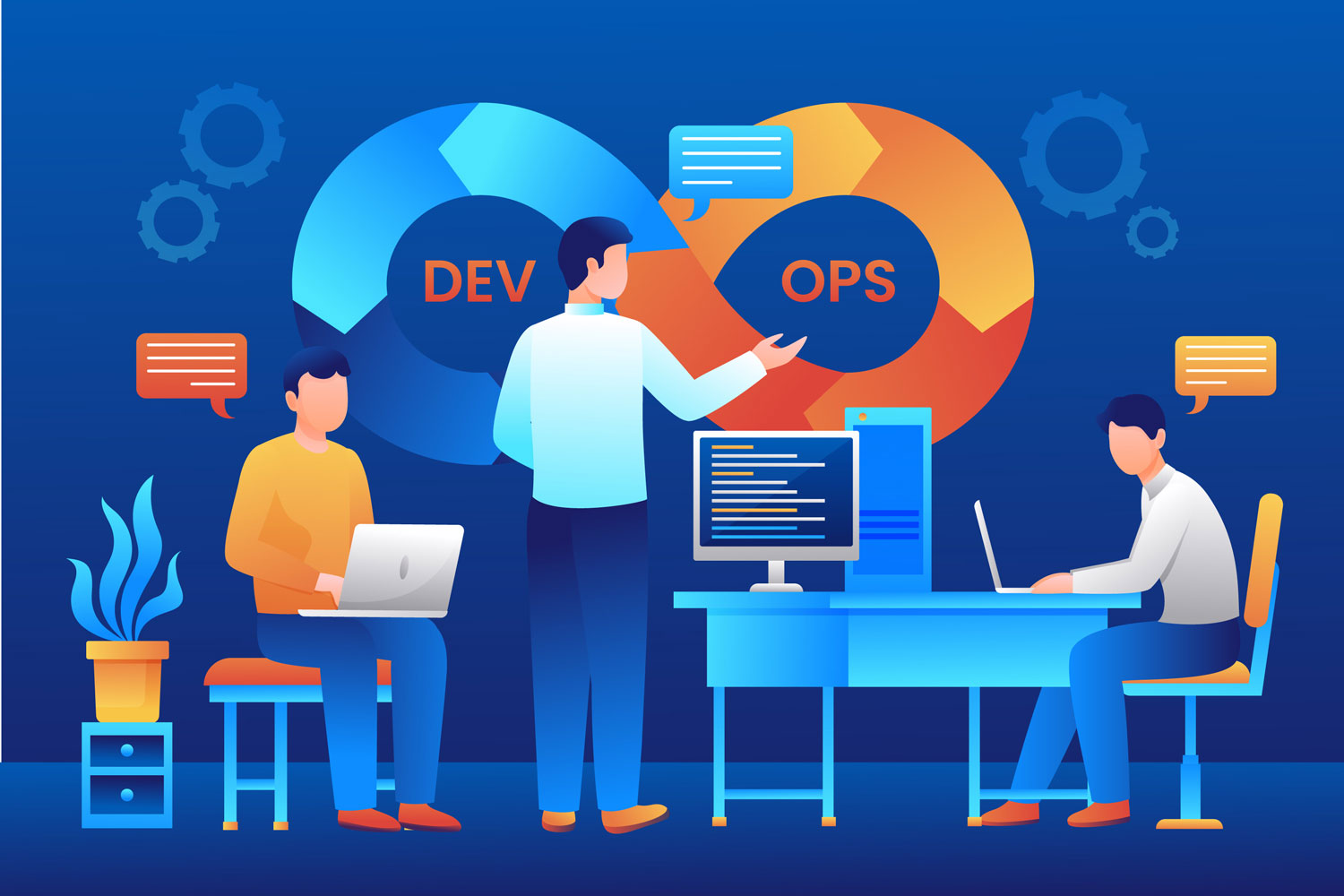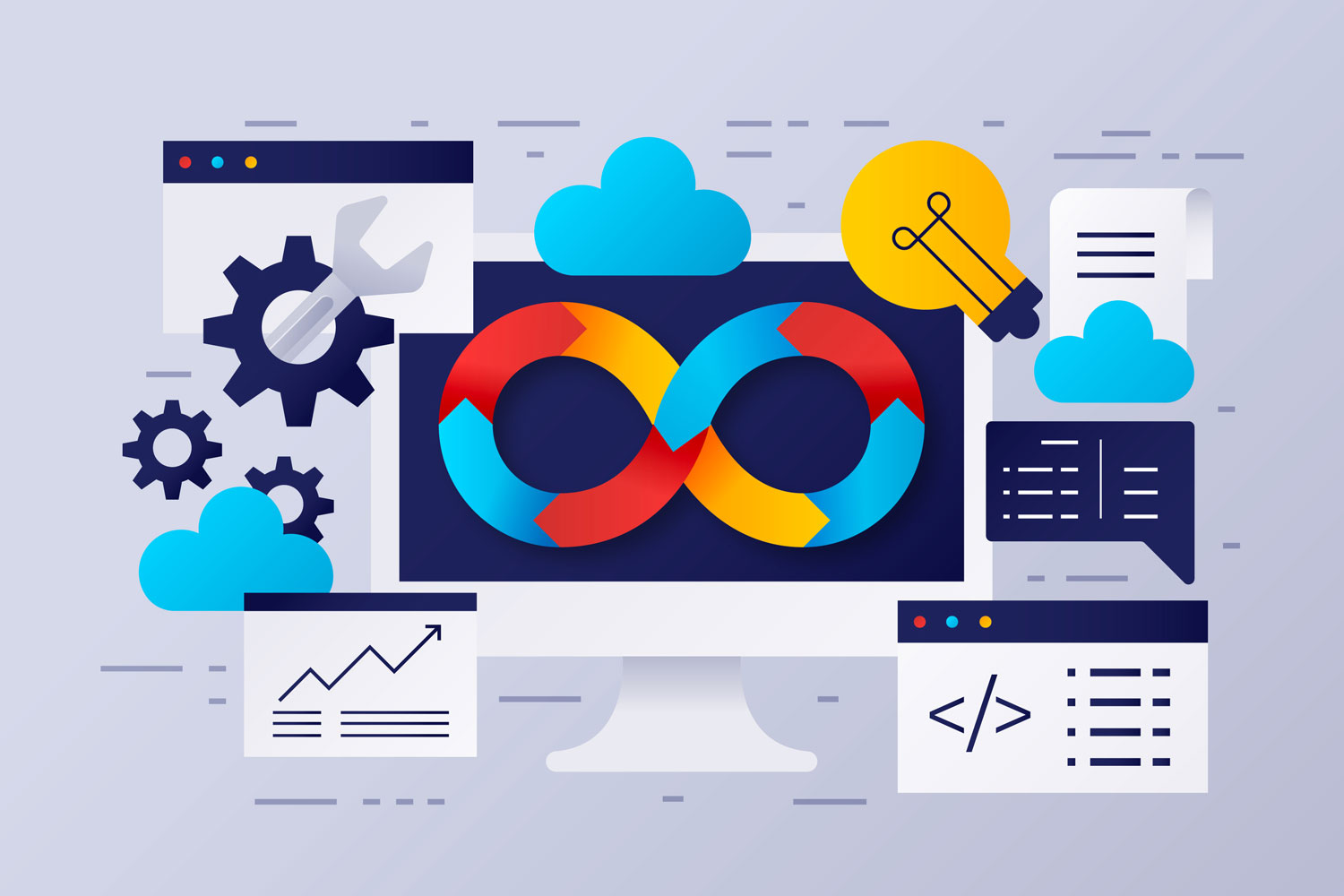
The software development market is always changing, driven by a never-ending need for faster delivery, higher quality, and tighter security. DevOps has become a ray of light in this endless quest, promoting cooperation, automation, and ongoing development. Even DevOps, meanwhile, isn’t a solution; manual chores continue to exist and hinder productivity by forming bottlenecks. But do not be alarmed; Robotic Process Automation (RPA) is a new hero on the scene.
Enter the RPA Revolution: Automating the Obvious to Unleash Agility
Automating repetitive, rule-based processes that would otherwise take up important developer and operations time is what RPA does, much like a never-ending digital assistant. This article explores the remarkable rise of RPA in the DevOps ecosystem and how it enables teams, DevOps development businesses, and consulting firms to automate processes, streamline workflows, and attain previously unheard-of levels of agility.
Software robots known as RPA bots imitate human behavior by interacting with systems and applications in a predetermined manner. Within the DevOps framework, RPA may automate numerous tasks, such as:
- Provisioning and configuration
Automating the creation and configuration of servers, containers, and other infrastructure components.
- Deployment automation
Automating the deployment of code changes to testing and production environments.
- Testing automation
Automating repetitive regression testing and performance testing.
- Change management automation
Automating the approval and execution of change requests.
- Security automation
Automating security checks and vulnerability scanning.
Breaking Down the Silos: RPA and DevOps Fusion
Development and operations have always operated in separate silos, which has resulted in inconsistent deployments, poor delivery cycles, and communication breakdowns. This gap was filled by DevOps, which promoted cooperation and ongoing development. But there were still manual jobs in the delivery chain, which led to obstacles.

Development and operations have always operated in separate silos, which has resulted in inconsistent deployments, poor delivery cycles, and communication breakdowns. This gap was filled by DevOps, which promoted cooperation and ongoing development. But there were still manual jobs in the delivery chain, which led to obstacles.
Imagine
- Automated configuration management
RPA bots can automatically provision infrastructure, configure servers, and deploy applications, eliminating manual errors and accelerating delivery.
- Automated release management
Scripts can automate testing, packaging, and deployment processes, ensuring consistency and reducing the risk of human error.
- Automated security audits
RPA can continuously scan for vulnerabilities and misconfigurations, freeing up security teams to focus on strategic initiatives.
- Automated infrastructure monitoring
Bots can constantly monitor system health, performance metrics, and logs, proactively identifying and resolving issues before they impact users.
These are merely a few examples of how RPA enables typical processes to be automated by DevOps services and solution providers, freeing up developers and operations teams to concentrate on higher-value endeavors like innovation and continuous improvement.
The Benefits of Automating DevOps with RPA
5. Focus on security and privacy:
With increased awareness of data privacy concerns, security will remain a top priority for app developers. Implementing robust security measures, adhering to data protection regulations, and building trust with users will be crucial for app success.
- Increased speed and agility
RPA eliminates manual tasks, accelerating the development and delivery of software.
- Reduced costs
Automating repetitive tasks saves time and money, freeing up resources for more strategic work.
- Improved quality
Automation reduces human error, leading to more reliable and consistent software releases.
- Enhanced security
RPA can automate security checks and vulnerability scanning, improving overall security posture.
- Increased developer and operations team satisfaction
Freeing teams from tedious tasks allows them to focus on more challenging and rewarding work.

Addressing Concerns and Embracing the Future
While RPA offers immense potential, some concerns have been raised:
- Job displacement
RPA automates tasks, but it doesn’t replace jobs. Instead, it frees up employees to focus on higher-level, strategic work that requires human judgment and creativity.
- Initial investment
Implementing RPA requires an upfront investment in technology and resources. However, the return on investment (ROI) can be significant, with improved efficiency and cost savings.
- Technical complexity
Setting up and managing RPA workflows can seem daunting. However, DevOps development services can offer expertise and guidance to ensure smooth implementation.
DevOps and DevSecOps: Hand in Hand with RPA

- Vulnerability scanning and patching
RPA bots can scan systems for vulnerabilities and automatically apply patches, ensuring timely remediation of security threats.
- Security configuration management
RPA can ensure consistent security configurations across environments, reducing the risk of misconfigurations and vulnerabilities.
- Security incident response
RPA bots can automate tasks like incident investigation, containment, and recovery, enabling faster and more effective response to security incidents.
The Future of DevOps with RPA
- More sophisticated RPA bots
RPA bots will become more intelligent, able to handle complex tasks and adapt to changing environments.
- Integration with AI and Machine Learning
RPA will be integrated with AI and machine learning to automate even more complex tasks and make better decisions.
- Democratization of RPA
RPA will become more accessible to smaller organizations, allowing them to reap the benefits of automation.
DevOps Consulting Companies: Your Guide to RPA Implementation
- Assess your current DevOps processes and identify areas suitable for automation.
- Develop a comprehensive RPA strategy and tools and technologies based on your specific needs aligned with your overall DevOps goals.
- Develop and implement RPA bots that seamlessly integrate with your existing DevOps pipeline.
- Train your team on how to use and manage RPA bots effectively.
- Provide ongoing support and guidance to ensure successful RPA adoption.
- Integrate RPA with your existing CI/CD pipeline for seamless automation.
- Monitor and optimize your RPA implementation for maximum efficiency.
- Evaluate the ROI of your RPA investment.
- Manage change effectively and ensure smooth adoption within your organization.

Looking for a DevOps consulting company or DevOps development company to help you implement RPA?
Here are some things to consider:
- Experience with RPA
Look for a company with proven experience in implementing and integrating RPA solutions in DevOps environments.
- DevOps expertise
The company should have a strong understanding of DevOps principles and practices.
- Industry knowledge
Consider the company’s experience in your specific industry or sector.
- Scalability and flexibility
The company should be able to scale its solutions to meet your growing needs and adapt to changing requirements.
By partnering with the right DevOps consulting company, you can unlock the full potential of RPA and transform your software delivery process.
Looking for a DevOps consulting company or DevOps development company to help you implement RPA?
Automation is where software development is headed. The way we develop, deliver, and use software is about to undergo a radical change because to RPA and DevOps approaches together. While automated security checks and compliance enforcement will help DevSecOps, DevOps testing will become more thorough and effective.
DevOps service providers may enable their customers to reach unprecedented levels of security, quality, and agility by implementing RPA. Are you prepared to embrace the revolution in automation? To realize the full potential of your DevOps journey, begin investigating the opportunities offered by RPA right now.






